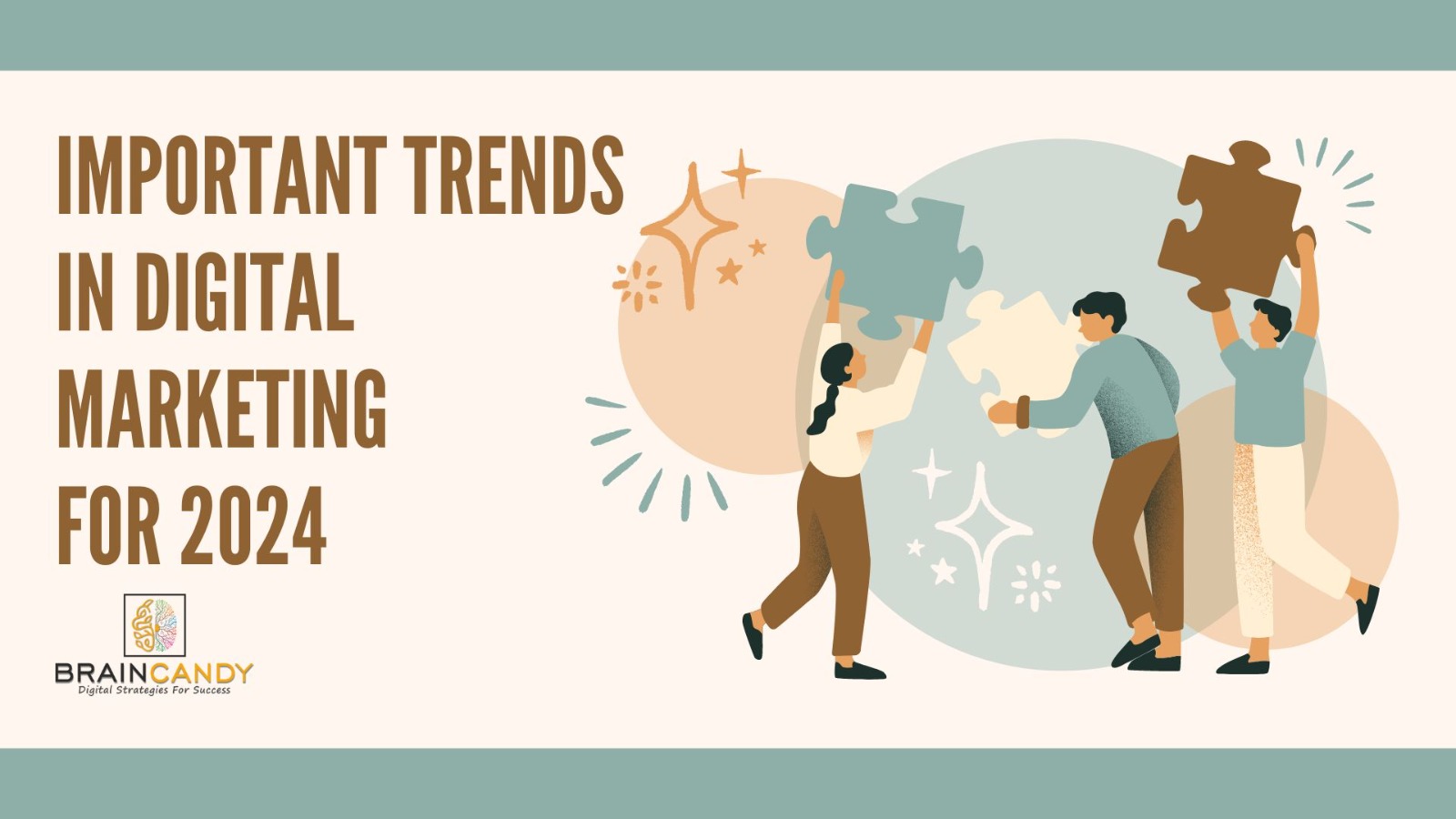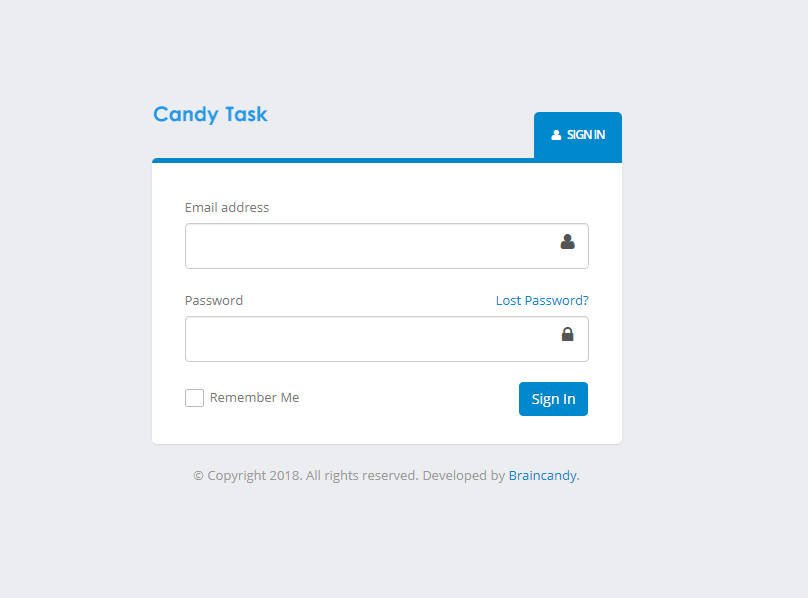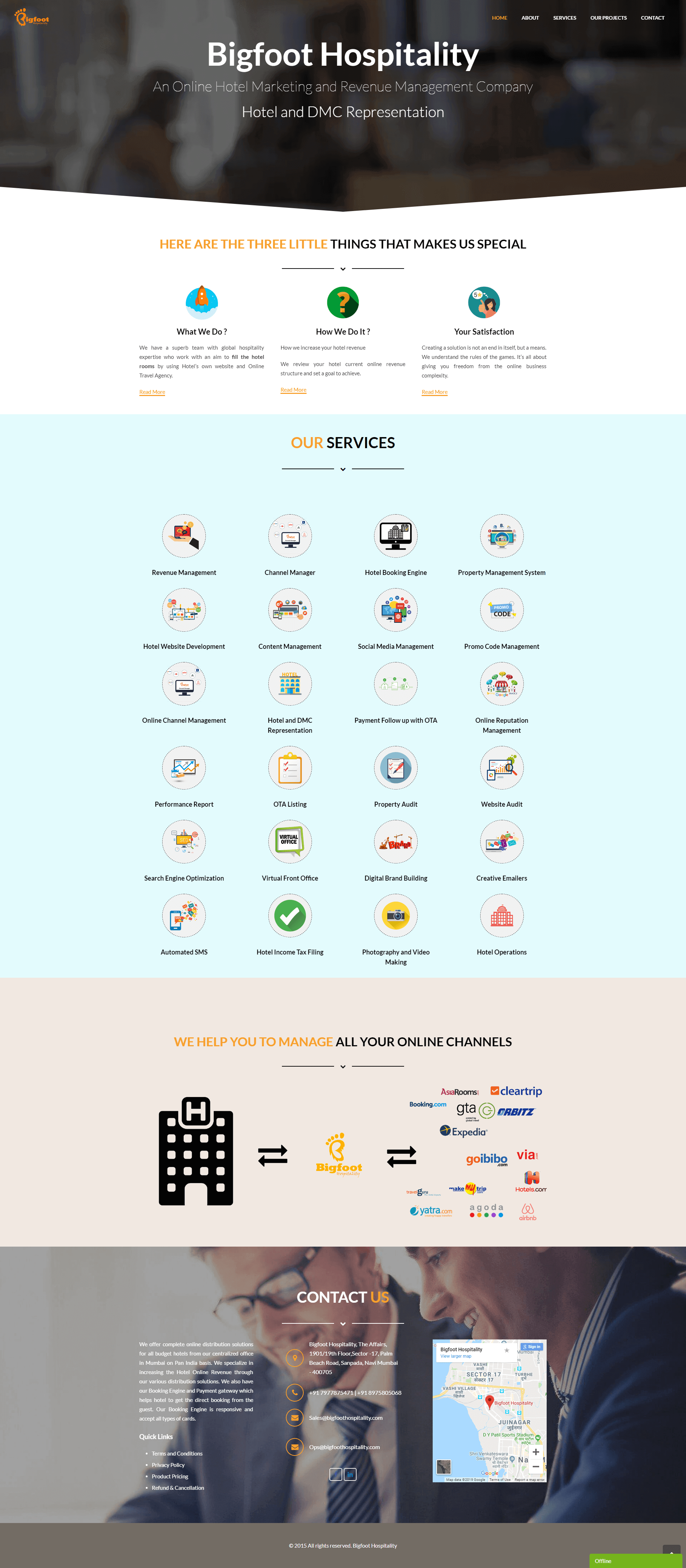14
May 2024
- BY braincandy
- POSTED IN SEO
- WITH 0 COMMENTS
- PERMALINK
- STANDARD POST TYPE

While I can’t predict the future, I can offer insights into potential digital marketing trends based on past trajectories and emerging technologies:
- AI-Powered Personalization: Artificial intelligence (AI) will continue to revolutionize marketing by enabling hyper-personalized experiences for consumers. AI algorithms will analyze vast amounts of data to predict consumer behavior and preferences, allowing marketers to tailor content and offers to individual needs.
- Voice Search Optimization: With the increasing popularity of voice-enabled devices like smart speakers and virtual assistants, optimizing content for voice search will become essential. Marketers will need to focus on natural language keywords and conversational content to improve visibility in voice search results.
- Augmented Reality (AR) and Virtual Reality (VR): AR and VR technologies will become more prevalent in digital marketing strategies, offering immersive experiences that engage and captivate audiences. Brands will leverage AR/VR for product demonstrations, virtual try-ons, and interactive storytelling to create memorable experiences for consumers.
- Blockchain in Advertising: Blockchain technology will bring transparency and security to digital advertising by verifying ad delivery and ensuring that advertisers get what they pay for. Smart contracts powered by blockchain will automate transactions and eliminate intermediaries, reducing fraud and improving accountability in the advertising ecosystem.
- Content Experience Platforms (CEPs): CEPs will gain traction as marketers seek centralized platforms to manage and deliver personalized content across multiple channels. These platforms will integrate content creation, management, and distribution capabilities, enabling marketers to deliver cohesive and consistent experiences across the buyer journey.
- Privacy-First Marketing: With growing concerns over data privacy and regulations like GDPR and CCPA, marketers will prioritize ethical data practices and transparent communication with consumers. Strategies such as zero-party data collection and permission-based marketing will become increasingly important for building trust and loyalty with customers.
- Social Commerce: Social media platforms will continue to evolve into e-commerce hubs, blurring the lines between social networking and online shopping. Features like shoppable posts, in-app checkout, and influencer marketing will drive sales directly from social media channels, offering seamless shopping experiences for users.
- Video Marketing Dominance: Video content will remain king in digital marketing, with short-form videos, live streams, and interactive video formats leading the way. Marketers will leverage video across social media, websites, and email campaigns to engage audiences and convey brand messages effectively.
- Micro-Moments Optimization: Marketers will focus on capturing micro-moments – brief instances when consumers turn to their devices for immediate information or assistance. By delivering relevant and timely content in these moments, brands can influence purchasing decisions and build brand affinity with consumers.
- Sustainability and Purpose-Driven Marketing: As consumers become more socially and environmentally conscious, brands will align their marketing efforts with values such as sustainability, diversity, and corporate social responsibility. Purpose-driven campaigns that resonate with consumers’ values will drive brand loyalty and differentiation in the marketplace.
These trends represent potential directions that digital marketing may take in 2024, but it’s important for marketers to adapt and innovate continuously in response to evolving consumer behaviours and technological advancements.












